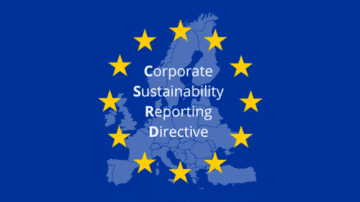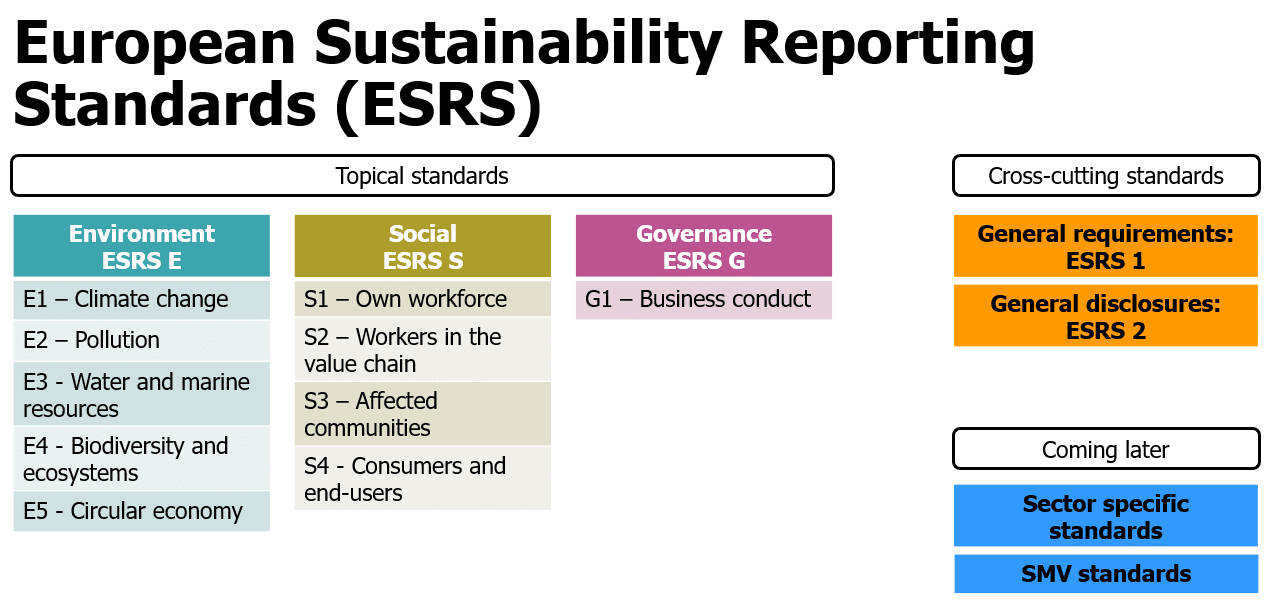CSRD
Corporate Sustainability Reporting Directive
Corporate Sustainability Reporting Directive (CSRD)
The Corporate Sustainability Reporting Directive (CSRD) is an initiative by the European Union (EU) to align sustainability reporting with financial reporting, set to be phased in starting in 2024:
Which companies are impacted?
All large companies established in an EU Member State that meet 2 or more of the below requirements will be subject to CSRD:
- €40 million in net turnover;
- €20 million on the balance sheet;
- 250 or more employees.
What are the timelines for implementation?
CSRD will impact entities in a phased approach:
- Large companies already subject to the Non-Financial Reporting Directive (NFRD) will be impacted first: from 2024, with their first CSRD-compliant annual report published in 2025.
- Large companies not subject to the NFRD will then need to comply from 2025, with their first annual CSRD-compliant annual report published in 2026.
- Listed SMEs will also be in scope from 2026, with their first annual CSRD-compliant report published in 2027. An opt-out may be possible for listed SMEs, exempting them from reporting until 2028.

Reporting Structure
Show full Reporting Structure PDF – Corporate Sustainability Reporting Directive (CSRD)
Examples of data for CSRD reporting
Anti-corruption and Bribery:
- Anti-corruption Policies: Description of anti-corruption policies, training, and compliance monitoring.
- Incidents of Corruption: Number of confirmed incidents and actions taken in response.
- Legal Compliance: Fines and other sanctions for non-compliance with laws and regulations.
Diversity on Company Boards:
- Board Diversity: Breakdown of board members by gender, age, ethnicity, educational and professional background.
- Diversity Policies: Description of diversity and inclusion policies, objectives, and outcomes.
Governance Factors:
- Corporate Governance Structure: Description of the governance structure, roles, and responsibilities.
- Ethical Conduct: Description of code of ethics, ethical conduct training, and monitoring.
Additional Reporting:
- Science-Based Targets: Progress towards science-based targets for reducing greenhouse gas emissions.
- Climate Risk-Related Reporting: Assessment of climate-related risks and opportunities, and strategies to address them.
Environmental Matters:
- Greenhouse Gas Emissions: Total emissions, emissions intensity, and reductions.
- Energy Consumption: Total energy consumption, energy efficiency measures, and renewable energy usage.
- Water Usage: Total water withdrawal, water recycling rates, and water-saving measures.
- Waste Management: Total waste generated, recycling rates, and waste disposal methods.
Social Matters and Treatment of Employees:
- Employee Health and Safety: Accident rates, occupational diseases, and safety training.
- Employee Training and Education: Training hours per employee, programs for skill management, and lifelong learning.
- Labor Practices: Collective bargaining agreements, employee turnover rates, and employee satisfaction surveys.
- Community Engagement: Community development programs, local hiring, and charitable contributions.
Respect for Human Rights:
- Human Rights Due Diligence: Policies, processes, and outcomes of human rights assessments.
- Supply Chain Management: Supplier assessments on human rights, and actions taken against suppliers violating human rights.
- Discrimination and Harassment: Number of incidents and actions taken to prevent discrimination and harassment.
